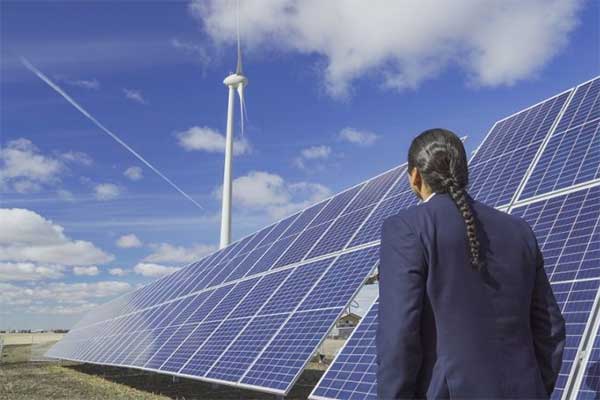- The Government of Canada announced an investment of $10 million to develop rural Saskatchewan’s cleantech infrastructure and deploy an Indigenous-run solar farm.
- The move will substantially increase the rate of new solar and other renewable energy projects in Saskatchewan.
- The announcement has been lauded by Indigenous leaders and community stakeholders.
The government of Canada has announced 10 million in funding for five Indigenous-led initiatives focused on enhancing rural energy security through renewable energy and preparing workers for the future green economy.
Jonathan Wilkinson, Minister of Natural Resources said the financing will “advance economic reconciliation, deploy clean energy and create sustainable jobs.”
The five projects include the creation of an 816-kilowatt solar farm in Tecumseh ($1.6 million), the development of a regional, Indigenous-led approach to renewable energy adoption, energy efficiency, and conservation in Meadow Lake ($4.3 million), the creation of a sustainability in security master’s degree at the University of Saskatchewan ($840,000, a bioheat system for two schools at Pelican Narrows and Deschambault Lake ($2 million), and a community energy planning project with the First Nations Power Authority of Saskatchewan ($975,000).
Richard Ben, Tribal Chief of the Mead Lake Tribal Council, commended the funding in a news release as a step towards the future of energy grids. “[These projects] are a stepping stone for our communities to learn and lead in community energy planning,” he said in the news release.
In particular, the funding will bring in desperately needed solar energy investment and an unspecified number of long-term jobs. The project will be overseen by Meadow Lake Tribal Council Solar Energy and will be 100% owned by the nine First Nations communities making up the council.
“Our communities struggle on a daily basis with energy security, and this [investment] impacts access, fair, reasonable access, costs, [and] reliability for our communities. This has huge and broad impacts. It has impacts on home heating, it has impacts on traditional pursuits.… it has a huge impact on the cost of life on a daily basis,” said Tribal Chief Richard Ben.
He also highlighted the synergy between solar energy and other cleantech careers and Indigenous philosophy about anthropogenic environmental impacts.
“It’s really good for us, especially to be a part of the economy. For many years, in the past, we never really had a good chance to be a part of the economy, especially something so geared toward our heart like protecting Mother Earth.”
In addition to the 1.6 million in funding for an Indigenous-run solar farm, these investments will build the necessary infrastructure to enable further solar development across rural Saskatchewan. They also highlight how clean technologies — particularly community solar projects — can be used as poverty alleviation tools in hard-hit areas typically deprived of traditional investment.
“There’s opportunities for enormous numbers of jobs, for procurement opportunities for Indigenous businesses, but also to participate in an equity basis on long-term benefits that will flow to Indigenous communities,” said Minister Wilkinson.
Relative to fossil fuels, cleantech investments are far more efficient at stimulating local economies, providing a greater number of long-term, well-paying positions. Solar energy produces 2.7 times more jobs for every million dollars invested than coal, oil, or natural gas.
This is due to the heavily automated nature of fossil fuels, which results in fewer community benefits.











Comments